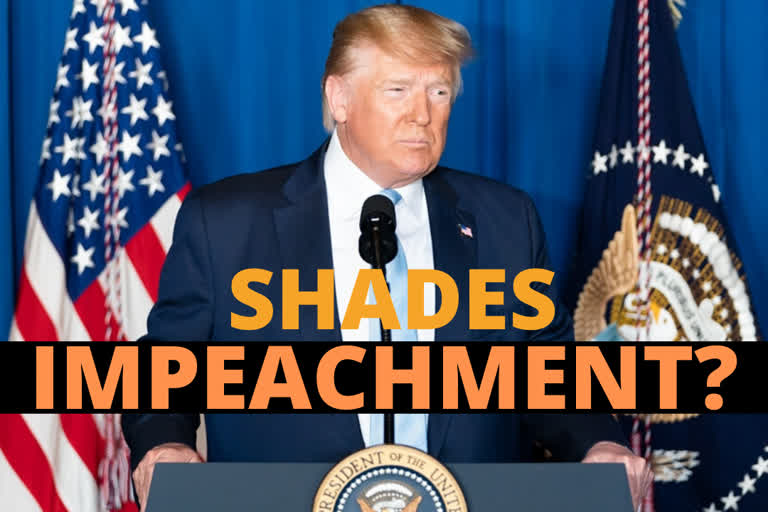Los Angeles:When US President Donald Trump ordered the killing of Iranian Major General Qassim Soleimani, he took a risk he had avoided earlier that has put the world on edge and overshadows his impeachment trial.
He is also changing the concept of asymmetric warfare on its head adopting a high-tech version of it that frees the superpower from committing conventional troops and hardware on the ground and instead relying on elements of surprise, superior intelligence and pointed strikes which were the strategy that weaker nations and groups have used but using people and conventional weapons.
If the confrontation with Iran escalates, the type asymmetric battles that the US has been waging in concept with missiles, drones and electronic and other surveillance would become the strategy of war that Trump will follow enabling him to keep his promise -- in word, if not in spirit -- of not waging wars abroad.
Read Also: With hours' notice, US fast-response force flies to Mideast
But Iran has been the master of this strategy and has a network of allies in the Middle East who can carry it on even if Trump carried out the threat he made to Iran in June of obliteration like you have never seen before.
If this type of asymmetric war breaks out in full force between the US and Iran, the casualties would be others - as has been shown by the recent attacks on ships in the Gulf and on Saudi oil installations by Tehran or its allies, and the US or Israeli actions in Syria, Iraq, and Lebanon.
Trump said on Friday that he ordered the elimination of Soleimani to make Europe and the rest of the world safer. The opposite may, in fact, be happening.
With that scenario of war in mind, France's deputy foreign minister Amelie de Montchalin said after the killing of Solaimani, "we have woken up to a more dangerous world."
Iran and its people are inured to wars and economic sanctions as seen by the Iran-Iraq War of the 1980s and various economic sanctions that could not shake their resolve.
An obliteration would only extend the chaos stemming from the decapitation of the leadership of Libya, Syria, and Iraq to Iran.
In an attempt to appeal to India, Trump said that Soleimani was behind terrorist attacks in New Delhi - perhaps thinking of 2012 injuring of an Israeli embassy official's wife and others which has been attributed to Iran, though the case has not been conclusively solved by the Delhi Police.
Iraq and Saudi Arabia are India's top oil suppliers and about 60 percent of petroleum and gas supplies come through the Gulf. Combine the risk that poses with the specter of energy price hikes and India's economic reboot from slowing growth could be in jeopardy.
The same geopolitical factors would also impact the world economy beyond the energy sector.
The killing of Soleimani is different from that of Al Qaeda boss Osama bin Laden or Islamic State (IS) chief Abu Bakr al-Baghdadi. They were spent forces and were non-state actors, just terrorists.
